Mozambique: President begins working visit to Inhambane province
MDM calls for more inclusive dialogue in Mozambique

DW Moçambique / Daviz Simango, leader of Mozambique's Democratic Movement
Democratic Movement of Mozambique (MDM) chairman Daviz Simango has spoken to DW Africa about the standoff between the government and Renamo, saying the conflict will continue unless there is a more inclusive dialogue.
In another in the series of violent incidents that have marked the political crisis in Mozambique in recent weeks, gunmen attacked a combined defense and security force checkpoint in Gorongosa on Wednesday [February 17].
Clashes between the military wing of Renamo and government forces have multiplied In recent months, with mutual accusations of kidnapping and murder.
Faced with the escalation of political tension, MDM chairman Daviz Simango has called for a more inclusive dialogue. In an interview with DW Africa, the leader of the MDM leaves no room for doubt: without this dialogue, the conflict will continue.
DW Africa: How do you see the recent incidents in the country?
Daviz Simango (DS): All these stories that have been taking place lead the country into uncertainty. And as they are numerous, they complicate life for the Mozambican citizen. Reconciliation is not effective, peace is not effective and Mozambicans continue to kill. All this due to discriminatory policies, hatred and violence, affecting the most vulnerable people. This is a major concern.
DW Africa: The leader of Renamo says they will only talk after taking power in the six provinces where he claims victory in the 2014 elections. How should the government react to this pre-condition?
DS: The big problem is that there have been successive postponements due to political intolerance. The country has spent a lot of money, created various verification commissions, there were hostility termination agreements, an international force created – lots of money was spent. Even the talks [government /Renbamo negotiations] at the Joaquim Chissano Conference Centre did not have any effect. It is important that dialogue is removed from this polarized framework into a dialogue in which all Mozambican society is involved. There can be no exclusion in a dialogue process. Both the president and the leader of Renamo must understand that the path of war is not the way that Mozambicans have chosen. The head of state can also look up Afonso Dhlakama and tell him “I’m looking for you, let’s talk.”
DW Africa: You are saying that the solution to the political crisis must be through a more inclusive dialogue, not only a dialogue between the two parties in open conflict. How can you reach such a dialogue?
DS: The government, due to the nature of its responsibilities, should take the initiative and say “Yes, sir, we are here. Society, which is interested in the process, is also here; now, Renamo, come and join the process.” The leader of Renamo is in Gorongosa, he does not wish to leave. So let’s all go there and start our negotiations, let’s talk to the man. We must rescue the country. The country is becoming a fragile state.
DW Africa: In your opinion, how will this situation evolve? Given the latest developments, what can we expect to happen in Mozambique in the near future?
DS: The conflict will continue, because one chases the other. We had already warned that compulsory disarmament was not the right way forward, and here is the result for everyone to see. We had already warned that the leader of Renamo going to the woods to check up on his armed strength was not the correct way. The correct way is for people to sit down and say “Yes, sir, the differences are these,” and offer a different ending to their differences. The two sides are not in any way authorized to take the life of Mozambicans.
DW Africa: There is also the issue of Mozambican refugees in Malawi. On Tuesday, the government spokesman admitted that the political crisis and drought are causing the population to take refuge in the neighbuoring country. Do you think this is a sign that the government will acknowledge the problem? Will the government support these people?
DS: The MDM has already denounced their behaviour. Through our political committee, we worked on the ground and exposed it publicly. So it is good to hear that the government acknowledges the situation. Now, the question is whether practical, humanitarian acts will follow or not. Will the government in fact do it, or is it simply trying to convince the world that it has a human face?


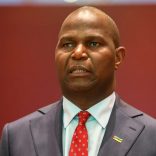
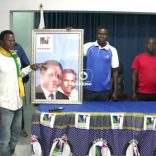
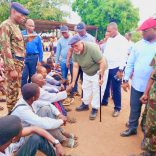
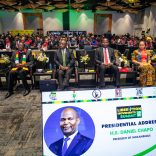
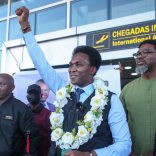






Leave a Reply
Be the First to Comment!
You must be logged in to post a comment.
You must be logged in to post a comment.